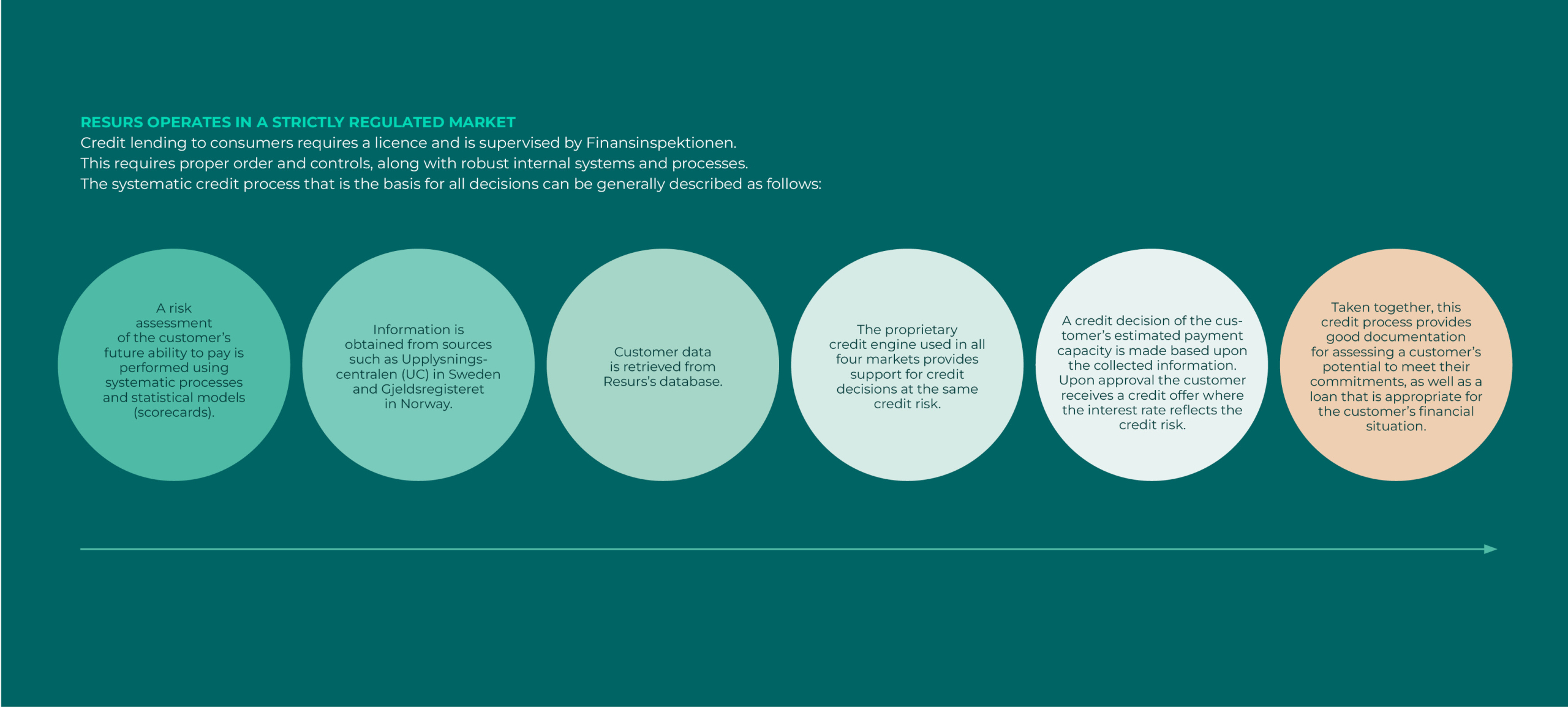Sustainable and responsible credit lending
With a customer base of slightly more than six million private customers in the Nordic market comes a responsibility to conduct credit lending as responsibly as possible. Responsible credit lending involves a financial services offering that is sustainable both today and in the long term – for individuals, for Resurs and for society as a whole.
The option for private individuals to take out loans or use credits is essential for a democratic, well-functioning financial ecosystem and society. Resurs has a responsibility as a creditor not to contribute to higher over-indebtedness in society, which it addresses through measures such as meticulous credit lending processes that ensure that customers do not borrow more than their private finances allow, as well as a commitment to educate individuals on how they can achieve balance in their private finances.
Employees’ skills are critical
Our employees’ skills are crucial to responsible credit lending. Their ability to grant credit is regulated at five authorisation levels linked to different amount limits, according to the logic that the higher the authorisation level, the greater the requirement for training and expertise. The internal training takes place on a continual basis. It is based on the Group’s credit policy, current legislation, Swedish Financial Supervisory Authority regulations and guidelines, as well as instructions and criteria for credit lending.
A proactive effort to minimise credit risk
Clearly stated terms and easily accessible information are fundamental to ensuring that the customer understands what is in a loan agreement. No one gains when a debt is transferred to a collection company for recovery. Both the customer and Resurs lose money, while Resurs suffers from damage to both its business and its brand.
The responsibility for credit lending lasts through the entire customer journey, from marketing to credit lending to the final repayment. For example, it might be a matter of how to deal with a customer experiencing payment problems due to a change in their life such as illness or divorce. The entire customer journey is continually analysed in order to further evaluate and improve existing tools and processes.
Resurs already continually tracks and analyses its customers’ risk profiles and contacts customers who have missed a payment, for example. Every market has several dedicated processors tasked with contacting, informing and assisting customers who are behind on their payments.
Following up the Responsible Credit Lending process
Resurs continually follows up its responsible and sustainable credit lending process, as well as the company’s ability to assess customers’ repayment capacity. It does so by analysing the percentage of payment arrangements made with customers who experienced payment difficulties, which they were subsequently able to manage.

